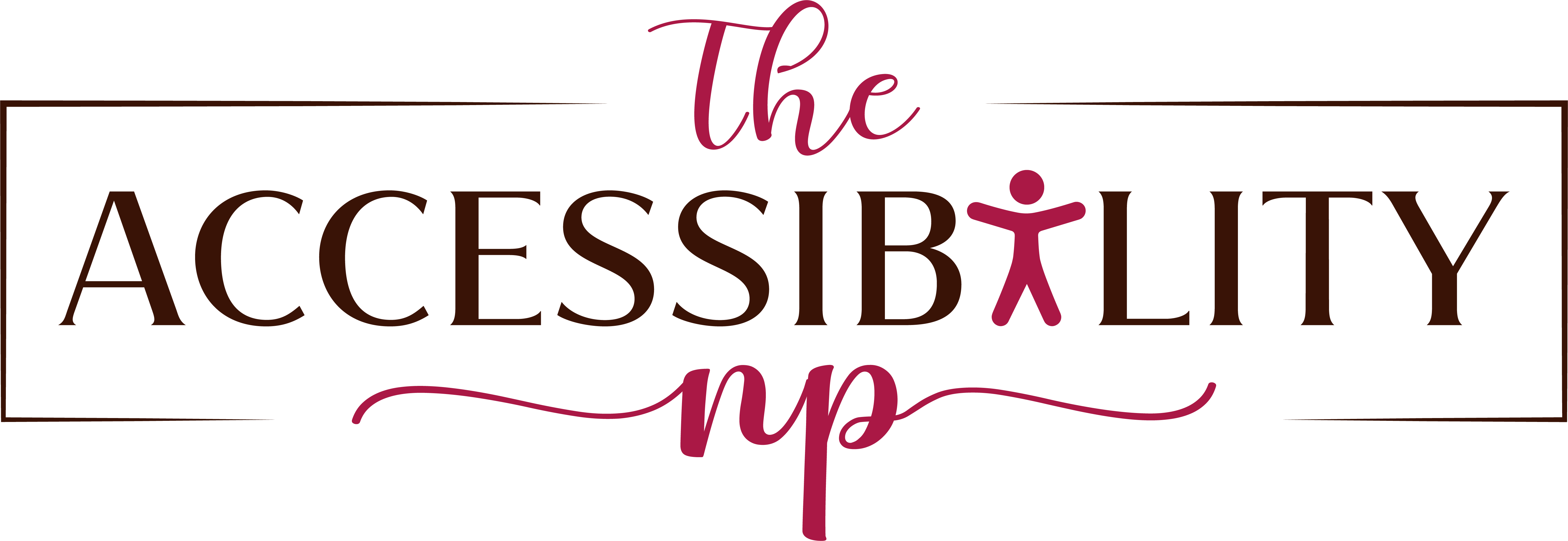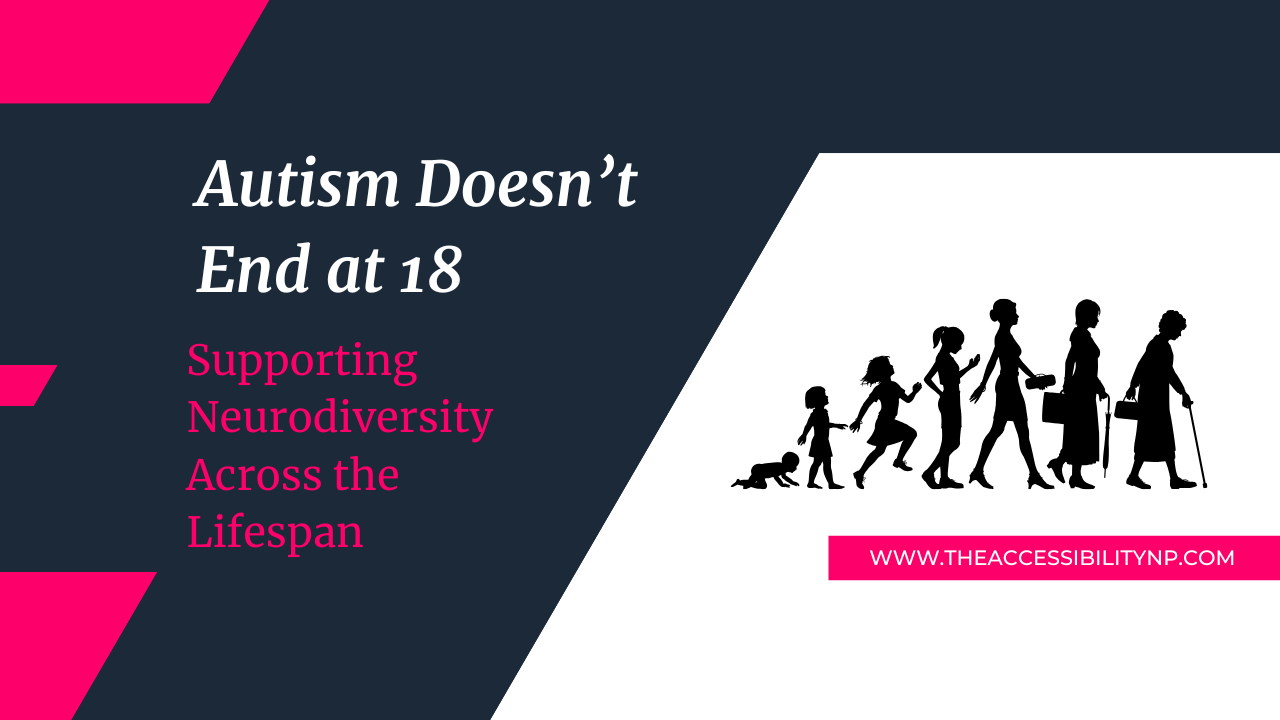For many, turning 18 is seen as a rite of passage, symbolizing independence and the beginning of adulthood. But for autistic individuals, the transition from childhood to adulthood often highlights the systemic barriers, lack of resources, and societal misconceptions surrounding neurodiversity. Autism does not magically disappear at 18, yet our systems often treat it as though it does.
While the world may expect 18-year-olds to be prepared for independence, autistic individuals and their families often face a starkly different reality. The shift from pediatric to adult services—and from school-based support to fragmented adult systems—leaves many navigating uncharted territory. For those who rely on routines, specialized therapies, and a network of support, the abrupt changes can be overwhelming.
Parents, educators, and advocates often focus heavily on early intervention and K-12 support, but what happens when school-based services and pediatric care end? What supports are in place for autistic adults entering higher education, the workforce, or adult care systems? If you’ve asked yourself these questions, you’re not alone.
The Reality of Adulthood for Autistic Individuals
When autistic individuals turn 18, they frequently “age out” of the supports provided through public education systems. Suddenly, families face the overwhelming task of navigating adult services, which are often fragmented, underfunded, or entirely absent.
The transition to adulthood exposes gaps in support systems, creating a “services cliff” that leaves families scrambling. This cliff can have profound implications on the quality of life for autistic individuals and their caregivers.
Employment
Despite their incredible skills and strengths, autistic adults face an unemployment rate of nearly 85%, significantly higher than the general population. Many workplaces lack inclusive hiring practices, reasonable accommodations, or even basic awareness of neurodiversity. Autistic individuals often encounter interviews designed for neurotypical candidates, overlooking the value of their unique problem-solving abilities, focus, and creativity.
Efforts such as tailored job coaching, supported employment programs, and inclusive hiring initiatives are essential to bridging this gap. However, these opportunities remain sparse, underfunded, and difficult to access for many.
Independent Living
Independent living is often viewed as a milestone of adulthood, but for many autistic adults, this requires varying levels of support. Housing programs that prioritize autonomy and choice are limited, and families frequently find themselves navigating long waitlists for supported living options.
Financial independence also ties into independent living. Autistic adults may qualify for disability benefits, but the application process can be cumbersome, with strict requirements that often fail to account for the reality of living expenses.
Healthcare
The transition from pediatric to adult healthcare is another area where autistic individuals face significant barriers. Pediatricians familiar with their needs often lack counterparts in adult care, leaving gaps in medical understanding and accessibility. Conditions like sensory sensitivities, anxiety, and gastrointestinal issues, common in autistic individuals, are often misunderstood or dismissed by adult healthcare providers.
A lack of training in autism-specific care means that autistic adults often avoid healthcare altogether, leading to untreated conditions and poorer overall health outcomes.
Social Isolation
The structured environment of school provides not only academic opportunities but also consistent social interactions. Without this structure, many autistic adults face isolation. Finding and maintaining friendships in adulthood is already challenging, but for autistic individuals, barriers like sensory sensitivities, communication differences, and a lack of accessible community spaces make it even harder.
Social isolation contributes to increased rates of depression and anxiety among autistic adults. Building inclusive communities where autistic adults can connect, engage, and feel valued is crucial to addressing this issue.
Autism and Neurodiversity Are Lifelong
Autism isn’t something people “grow out of.” It’s a lifelong part of an individual’s identity, shaping how they experience and interact with the world. Yet societal attitudes often fail to reflect this reality. The misconception that adulthood equals independence in a narrow, neurotypical sense undermines the autonomy and dignity of autistic individuals.
The neurodiversity movement has taught us that autism is not a tragedy or something to fix. It’s a natural variation in how brains are wired. By understanding autism as part of the broader human experience, we can shift away from deficit-based thinking and toward creating inclusive environments where everyone can thrive.
The Power of the Neurodiversity Movement
The neurodiversity movement has reshaped conversations around autism and disability, emphasizing acceptance over accommodation and celebrating strengths rather than focusing on deficits. This shift encourages society to see autistic individuals as contributors, leaders, and changemakers, rather than solely as recipients of care.
However, embracing this framework requires systemic change. While acceptance has grown in some areas, meaningful inclusion—particularly for autistic adults—remains an ongoing challenge.
Advocacy for a Better Future
Supporting autistic individuals throughout their lives means addressing systemic gaps and challenging societal attitudes. Advocacy must go beyond early childhood and school systems, extending into every aspect of adult life. Here’s how we can advocate for meaningful change:
Expand Services for Adults
Adult services must go beyond basic needs and provide meaningful opportunities for employment, housing, and recreation. Expanding programs like vocational training, supported employment, and community-based housing models can help ensure that autistic adults have access to choices that align with their goals and preferences.
Workplace Inclusion
Employers play a critical role in creating an inclusive society. Neurodiversity training, flexible accommodations, and policies that foster acceptance can transform workplaces. Programs like mentorship, reverse job interviews, and sensory-friendly environments can pave the way for autistic adults to thrive professionally.
Access to Healthcare
Healthcare providers need autism-specific training across the lifespan. This includes recognizing co-occurring conditions like anxiety, sensory sensitivities, and gastrointestinal issues, as well as respecting the communication preferences of autistic adults, whether through speech, AAC devices, or written methods.
Education and Awareness
Shifting societal attitudes starts with education. By promoting neurodiversity acceptance and understanding, we can create communities where autistic adults feel valued and included. Advocacy campaigns, school programs, and community workshops can all play a role in spreading awareness.
Listen to Autistic Voices
“Nothing about us without us.” This principle underscores the importance of centering autistic voices in every conversation about services, policies, and inclusion. Autistic adults are the experts on their own lives, and their experiences should shape the programs, supports, and policies designed for them.
Celebrating Strengths and Differences
Autistic adults contribute to our world in countless ways. From creative problem-solving to innovative thinking, their strengths often challenge traditional ways of approaching problems and inspire new solutions.
By recognizing autism as a lifelong journey, we can celebrate these strengths and create a society where neurodiverse individuals feel empowered to pursue their goals and live fulfilling lives. Autistic adults are artists, scientists, writers, entrepreneurs, and more. Their contributions highlight the richness of neurodiversity and the importance of inclusive communities.
Autism doesn’t end at 18, and neither should our support. By advocating for systemic change, listening to autistic voices, and fostering acceptance, we can ensure that neurodiverse individuals have the opportunities and resources they need to thrive at every stage of life.
It’s time to move beyond seeing autism as a childhood concern and embrace it as a lifelong part of human diversity. The journey to acceptance and support is ongoing—and it’s one we all have a role in shaping. Together, we can build a world where every autistic individual, regardless of age, feels valued, included, and celebrated for who they are.
See you next Monday. Stay inspired and keep pushing for accessibility!

